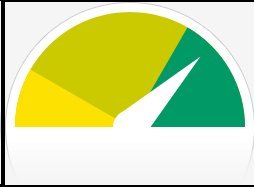I could say creative writing is right-brained and publishing is left-brained; writing is artistic, publishing all business. I could say that and I’ve heard it said by some “experts” but, even though I did just say it, my experience of both realms forces me to say it ain’t so.
For twenty-some years I wrote creatively and paid scant attention to publishing. I used Lulu.com to get my books published but never saw many sales. In fact, all my books except the one I’m working on now are free to download. I could apply what I’ve recently been learning about publishing and help them sell but I consider them my practice books, possibly well written but not as important to me as Notes from An Alien.
Even Notes from An Alien, when it’s published in April and can be purchased for cash, will still be available for free. One ultra-creative thing I’ve learned about self-publishing is that Free helps Sales–check out the article Giving It Away on Forbes.
There’s the whole argument raging in the hallways of the Internet about traditional vs. self-publishing but I’ll have to leave the particulars about that issue for a possible future post. All I’ll add right now is that, if you decide self-publishing is what you want, definitely check out FastPencil!
So, what have I learned about (self-)publishing that makes it not just some business activity that follows the creative joy of the writing discipline?
Well, the first truth that hit home in my study and activity to promote my forthcoming book (and promotion is critical, ’cause, if no one knows about it, it won’t sell), the first creative activity that publishing demands is forming relationships with people. And, relationships, whether you form them in person or online, can be just as creative to begin and sustain as the partnerships authors have with their characters ( see my previous post 🙂.
If you were trying to find a mate in your personal life, you’d either play the field or, at least, study the field before you committed yourself. That takes creativity.
If you’re looking for a set of characters to populate a book, the process may be more “mystical” or artistic but you’d still be interacting creatively with potential characters.
And, when it comes to finding the audience for your book (and, you’d better start looking for them before or during the writing of the book), it’s not just some dry business-metrics activity. You have to get out there and flirt with the people, find out who responds, and start acting magnetic toward the best catches…
I could go on with the parallels of creativity in writing and publishing but blog posts are best digested when served in small portions. For more detailed info on publishing creatively, check out the list of links on Publetariat.
Have some experiences where you learned how to be creative about publishing?
Have some questions about why self-publishing might be better than traditional publishing?
Have some jokes about the pitfalls of creative writing/publishing?
Please, do share in the comments 🙂
~~~~~~~~~~~~~~~~~~~~~~~~~~~~~~~~~~~~~~~~~~~~~~~~~~~~~~~~~
Follow the “co-author” of Notes from An Alien, Sena Quaren:
On Facebook
On Twitter
AND, Get A Free Copy of Our Book


